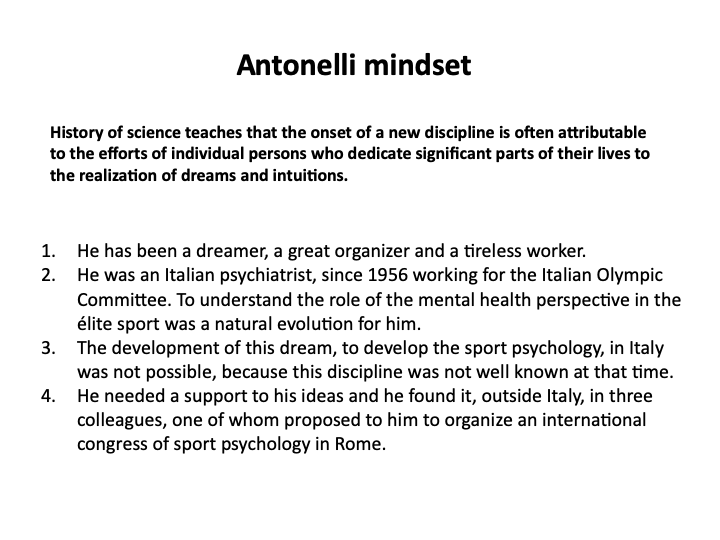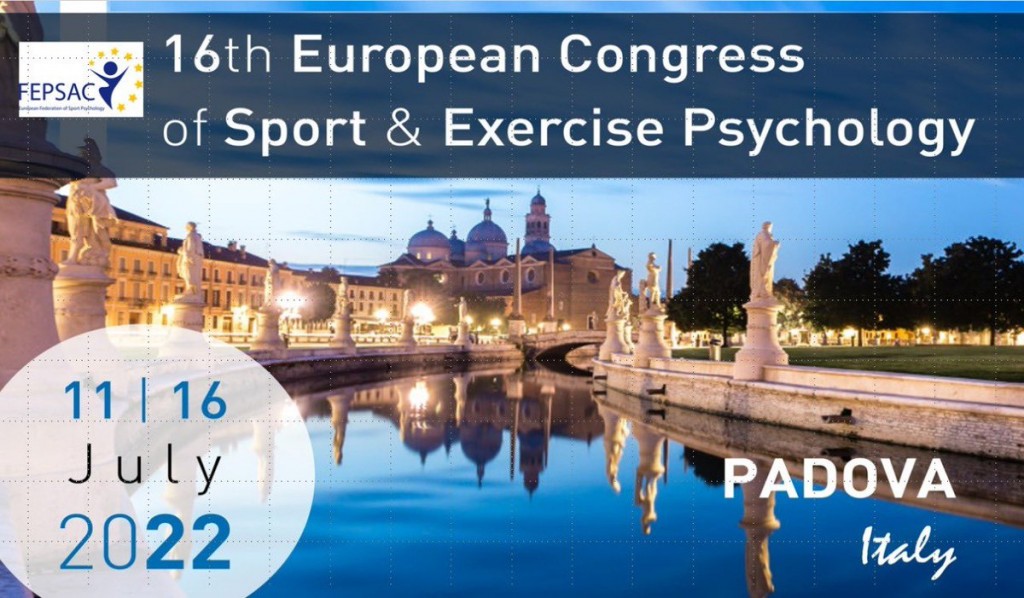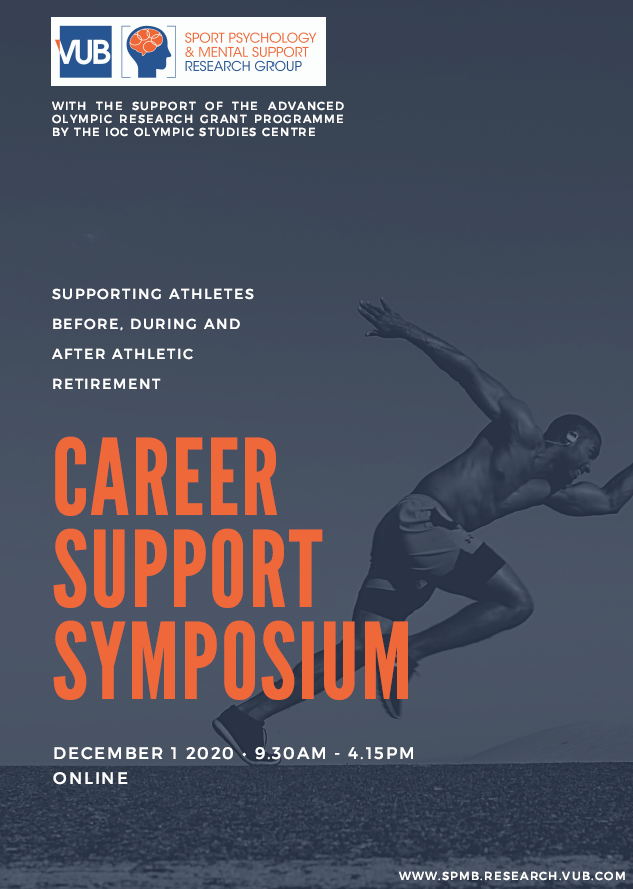The Master of Sport Psychology in Rome is going to start. The first topic that will be addressed is the development of sport psychology since the foundation of the International Society of Sport Psychology (ISSP) in 1965. It is the story of the so-called founders of this discipline in the contemporary world. We will therefore talk about Ferruccio Antonelli but also about many other scholars of those early years. It is an important aspect that concerns the knowledge of the origins of the profession in which one works and that is ignored by most professionals and researchers.
But we will look not only at the past but also at the present and the future. A very topical issue that ISSP and Fepsac, the European association, are pursuing concerns the continuing education of psychologists. They are defining what are the paths not only educational but also of continuing education in sport psychology that are recognized internationally. Participation in this worldwide movement of professionals will become increasingly important and will allow easier accreditation of professionals who have done different training courses in different countries but the same in terms of hours of training, supervision and maintenance of the required update over time.








